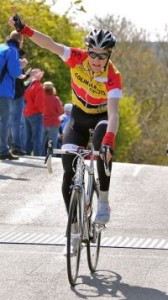Main Menu
Latest Blog Entry
User login
Principles of Athletic Development : GAIN review 1
“Are you making athletes better or tired or more predisposed to injury?”
This was one of the key questions we were asked on the GAIN 2011 conference in Houston, Texas in June.
It is easy to make Athletes tired, it is easy to do STUFF, but making them better and knowing why you are doing things is difficult.
This is the 1st of 5 blogs that will review some of the things covered over the 5 day conference. It is a summation of my reflections and thoughts since then: hence the delay.
The conference was held over 5 days, with practical sessions starting at 0630 and seminars finishing at 2100. There were about 60 people attending, from several different countries (mostly USA) with a variety of backgrounds: Physiotherapists, track and field coaches, cricket coaches, Physical Education specialists (not Games teachers) Strength and Conditioning Coaches and Athletic Trainers.
This varied gene pool led to interesting points of view and was a welcome change from spending a weekend with tubby S&C coaches carrying fat shakes around.
Principles of Athletic Development
This was the subject of the first afternoon, led by Vern Gambetta. Here we looked at what our role is as a Coach.
If you have not read his book on Athletic Development, then I recommend it. The principle is that the body is a whole and we must remember why we are training at all times.
- The Stuff we do must connect: training sessions, body parts, exercises with what happens in competition.
- As a Coach we have to “ Design and implement an effective practical training or rehab programme that produces measurable and visible results in the required time frame.”
Physical Literacy in the 21st Century
Kelvin Giles looked at the current state of “athletes” now. If you do some of the S&C courses out there at the moment, you would think that every one walks into a gym ready to back squat twice their body weight, and snatch body weight: and that is all they need to succeed. However, the current young person is so physically deconditioned due to lifestyle, the lack of P.E in schools and too much sport specific training, this is a dream world.
One of the problems is that “we live in a world where sport science at all of the pie. It has generated random number gatherers.” All the physiological monitoring has failed to monitor the mechanical load. (Think of the bleep test with acceleration, deceleration, restarting, change of direction).
- The athletes need to have the ability to endure agility and accelerate, decelerate.
- 70% of ACL injuries are non-contact. If the athlete has been conditioning properly, we can reduce that chance.
- Some programmes include a lot of lying down “core work”. Why? They lie down when they leave your session?
- “Never load a poor movement, and certainly never consistently do it.”
This was a bit of confirmation bias on my part, as all the work we have been doing with the SWT and TASS athletes over the last 4 years has led myself and Paula Jardine to conclude that most young athletes can not do basic movements well. Let alone efficiently, let alone under pressure or stress.
Next: Strength and power concepts with Jim Radcliffe
Further reading:
- Where to help your child become fitter.
- How this helps the young athletes at the Excelsior Athletic Development Club
- Learn to coach these principles on our Athletic Development Coaching Course
Client Testimonials
 Seb Baylis + Tom Baylis
Seb Baylis + Tom Baylis
"James Marshall is now managing my two sons' strength and conditioning training for a fourth consecutive year. From the very start, youngsters and parents alike have easily engaged with James' professional approach and personable manner. Now both semi-professional cyclists aged 20 and 18, between them they have achieved numerous successes in the National Junior Series, including two stage wins, a silver medal in the National Championships, and selection for team GB in the Junior World Series.
More


Comments
[…] have seen Kelvin present a few times before, and talked quite a bit with him. This was the first time I saw him talk about […]